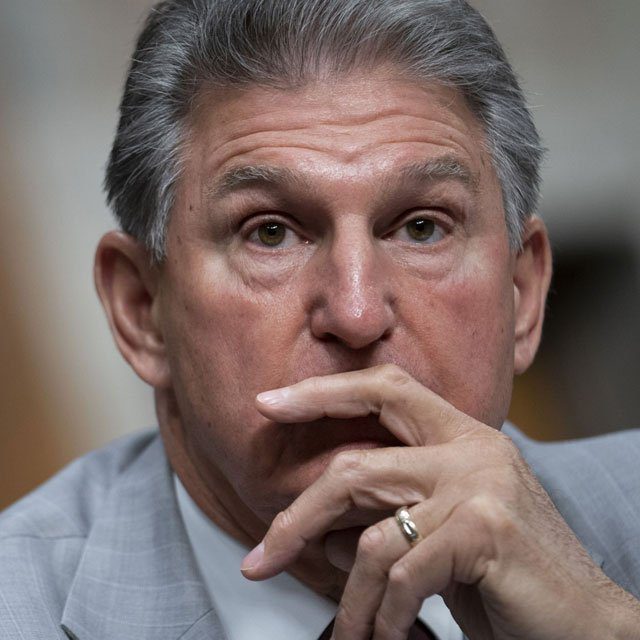No, Mr. Manchin, Taxes Don't Cause Inflation

What You Need to Know
On the contrary, higher taxes can help get prices under control, a tax professor and former Treasury official argues.
Senator Joe Manchin, in rejecting the package of tax increases and climate measures central to President Joe Biden’s economic agenda, has cited an issue of legitimate concern for Americans: the unacceptably high level of inflation.
Lest anyone be misled, I must set the record straight: Higher taxes do not stoke inflation. On the contrary, they can help get prices under control.
The economics profession, contentious as it is, has achieved near consensus on some core principles. For example: price ceilings generate shortages, tariffs distort trade, carbon taxes are efficient — and tax increases reduce inflation. Even economists who oppose higher taxes recognize this simple fact. Inflation results from a mismatch: When demand for goods and services exceeds supply, prices increase. Raising taxes has the opposite effect, reducing disposable income and hence demand.
What, then, is Senator Manchin thinking? The Biden plan would increase taxes on wealthy individuals and corporations — including by implementing a historic agreement on minimum taxes for multinational companies — and direct the revenue toward priorities such as clean-energy tax credits to mitigate climate change. I can imagine four concerns, none of which stands up to scrutiny.
1. What if the spending outweighs the tax revenue, increasing aggregate demand? This is possible, but it can be prevented by sticking to the principle of net deficit reduction — something that Manchin could insist upon, and that negotiators have already accepted.
2. What if the type of tax increases proves inflationary? Wealthy people are less reliant on marginal income, so higher taxes might have less effect on their demand. But the effect is still negative: Higher taxes won’t encourage them to spend more.
3. What if higher taxes impair supply? No doubt, the pandemic and the war in Ukraine have contributed to inflation, by preventing supply from meeting demand. But aggregate supply is much less directly sensitive to tax: It depends more on economic fundamentals such as labor, capital stock and technology. To the extent there’s a mismatch, the immediate solution is to address demand — all the more reason to raise taxes to bring it into line.




